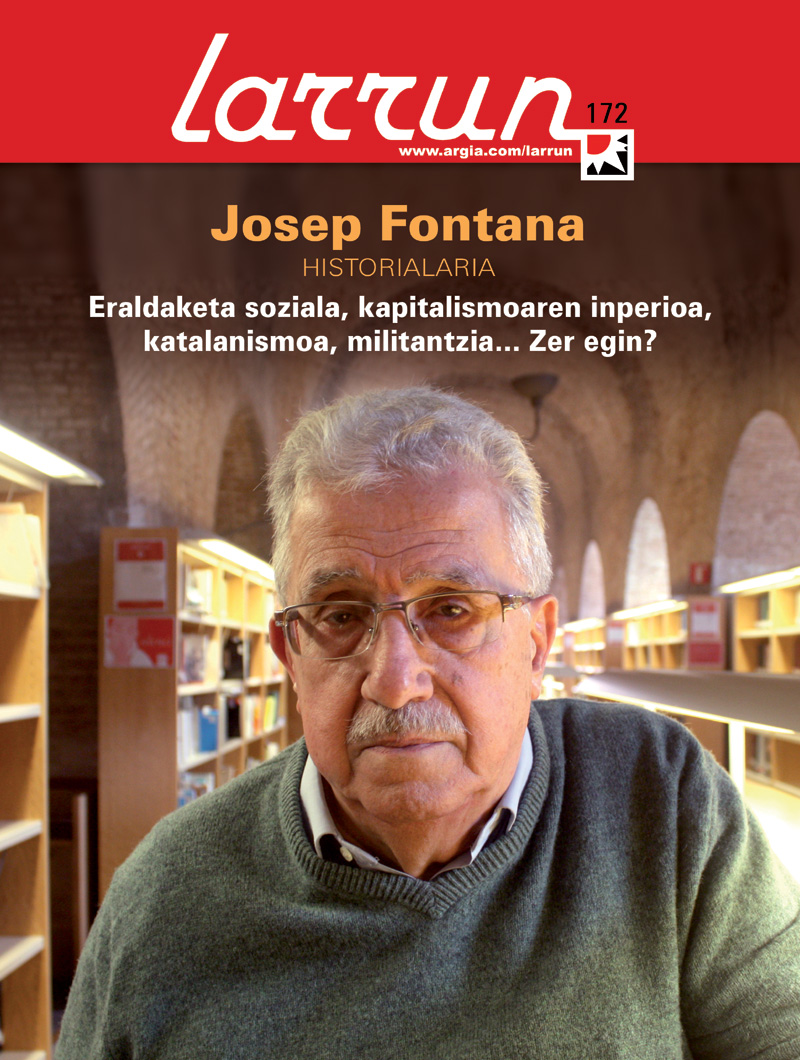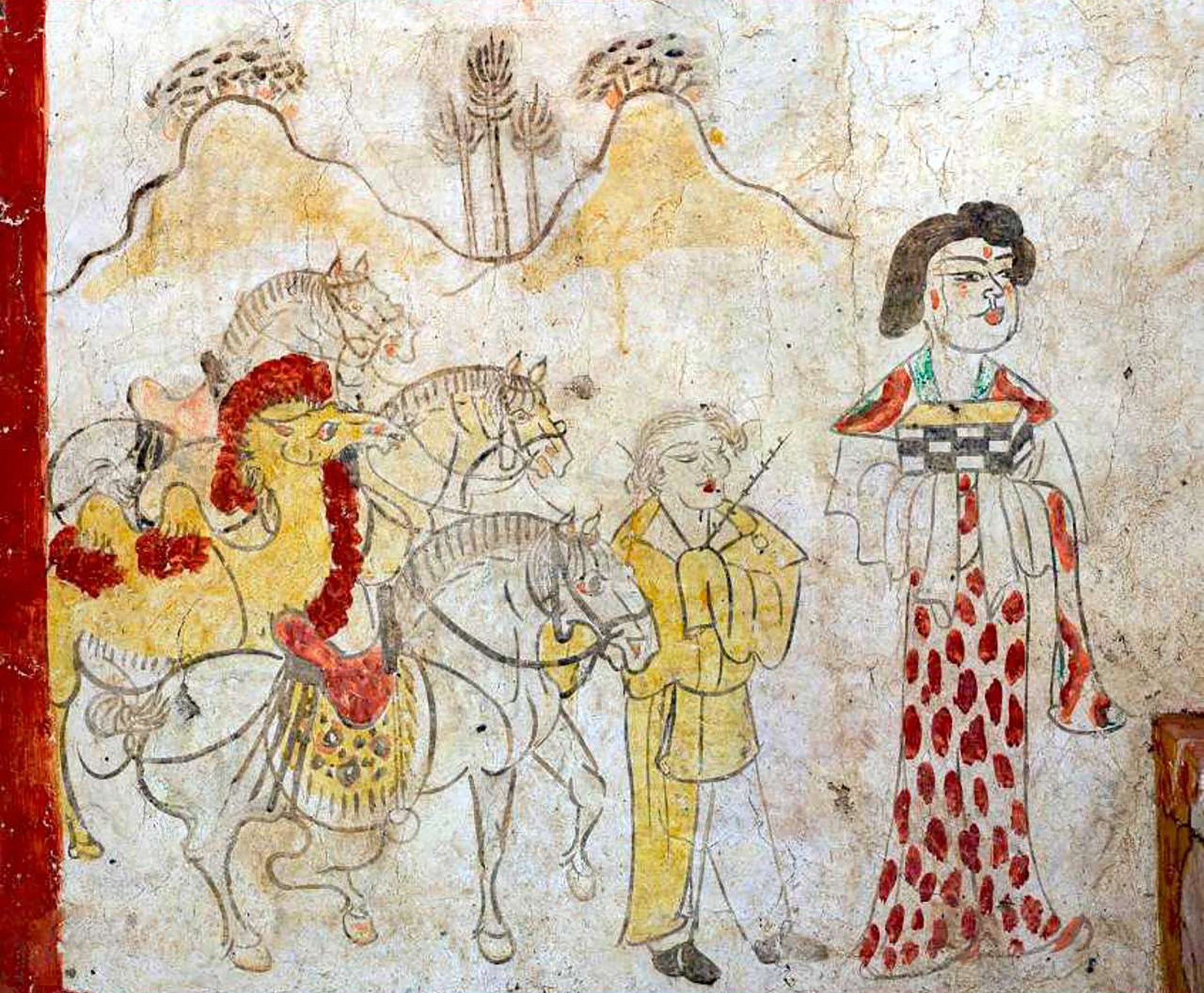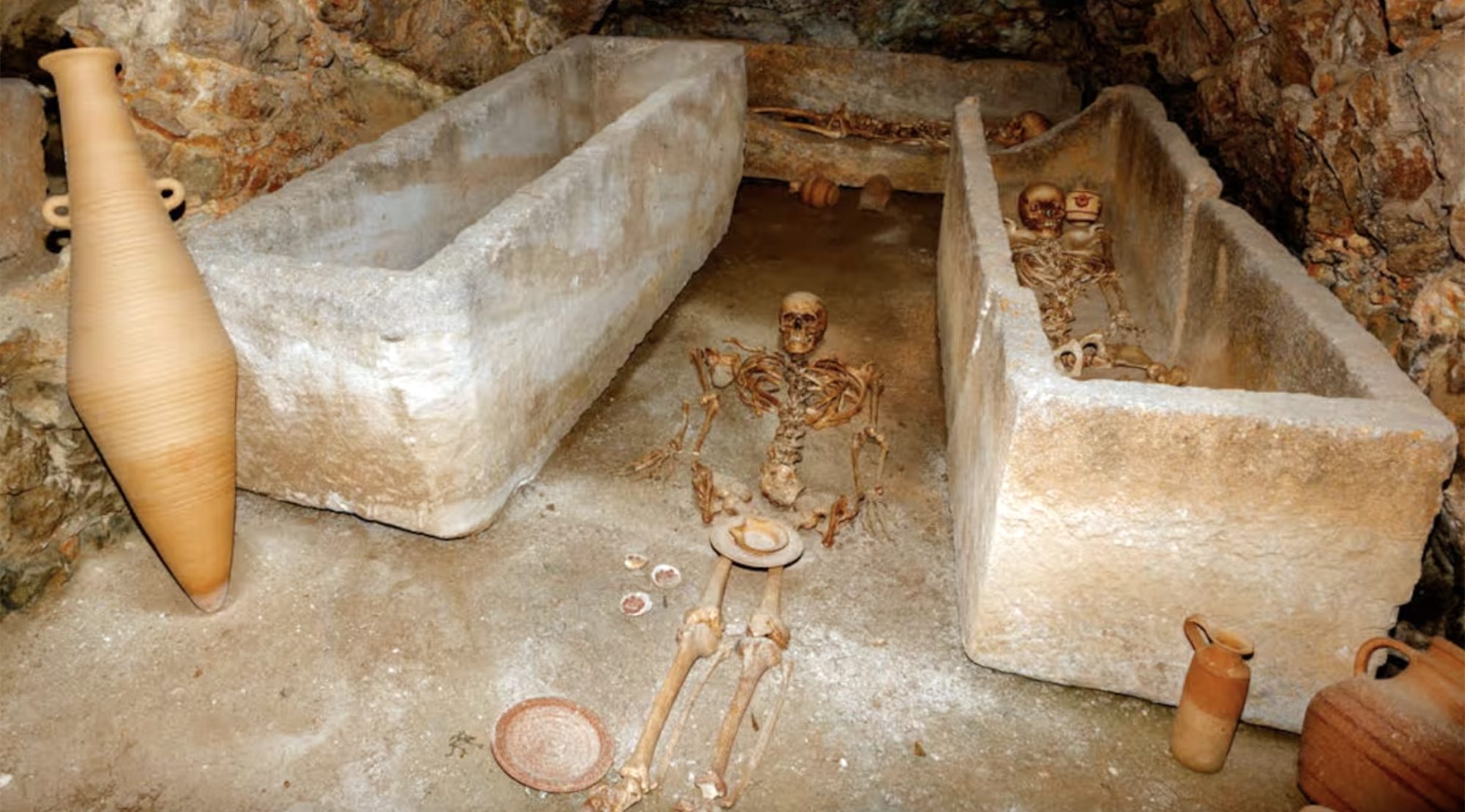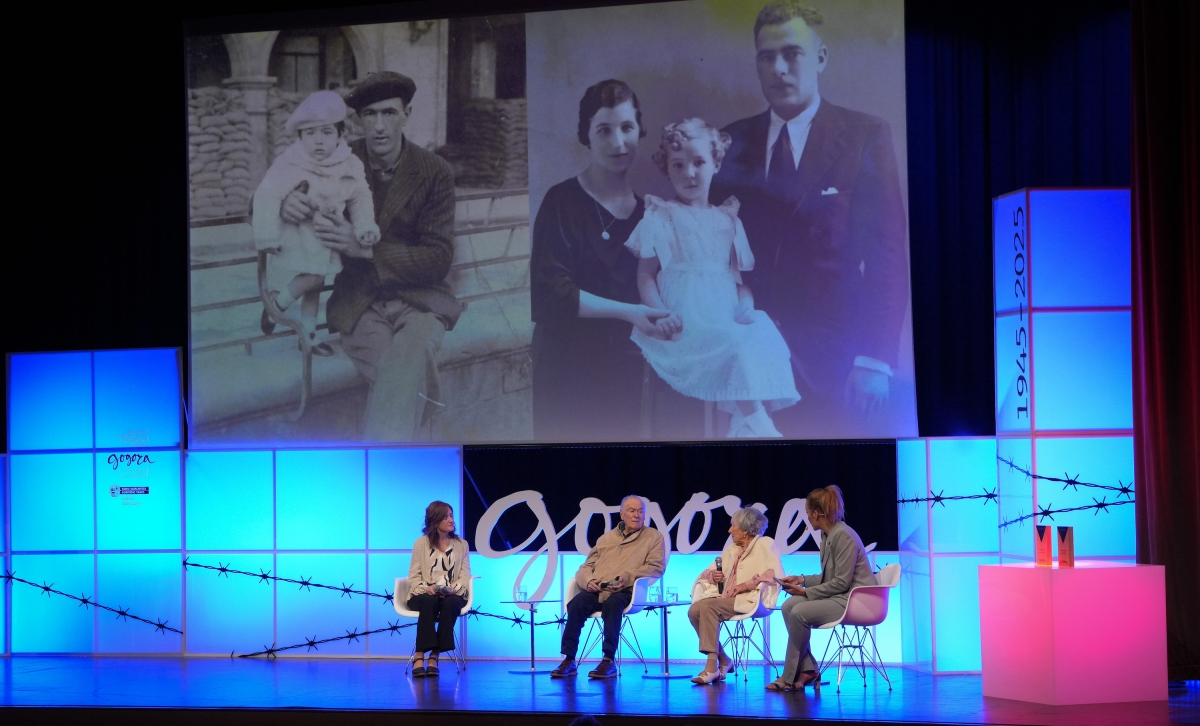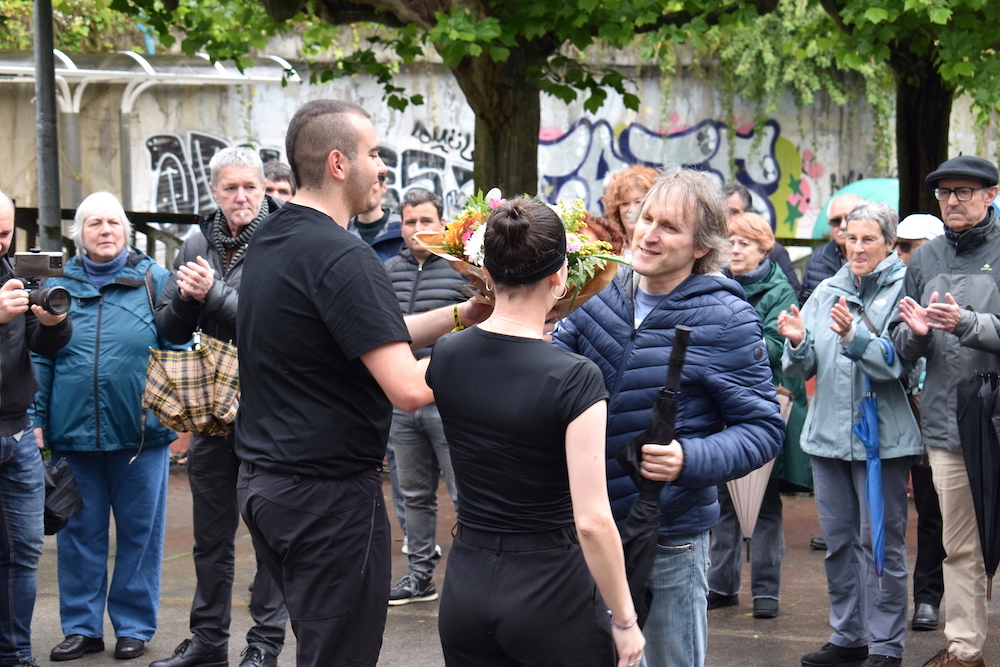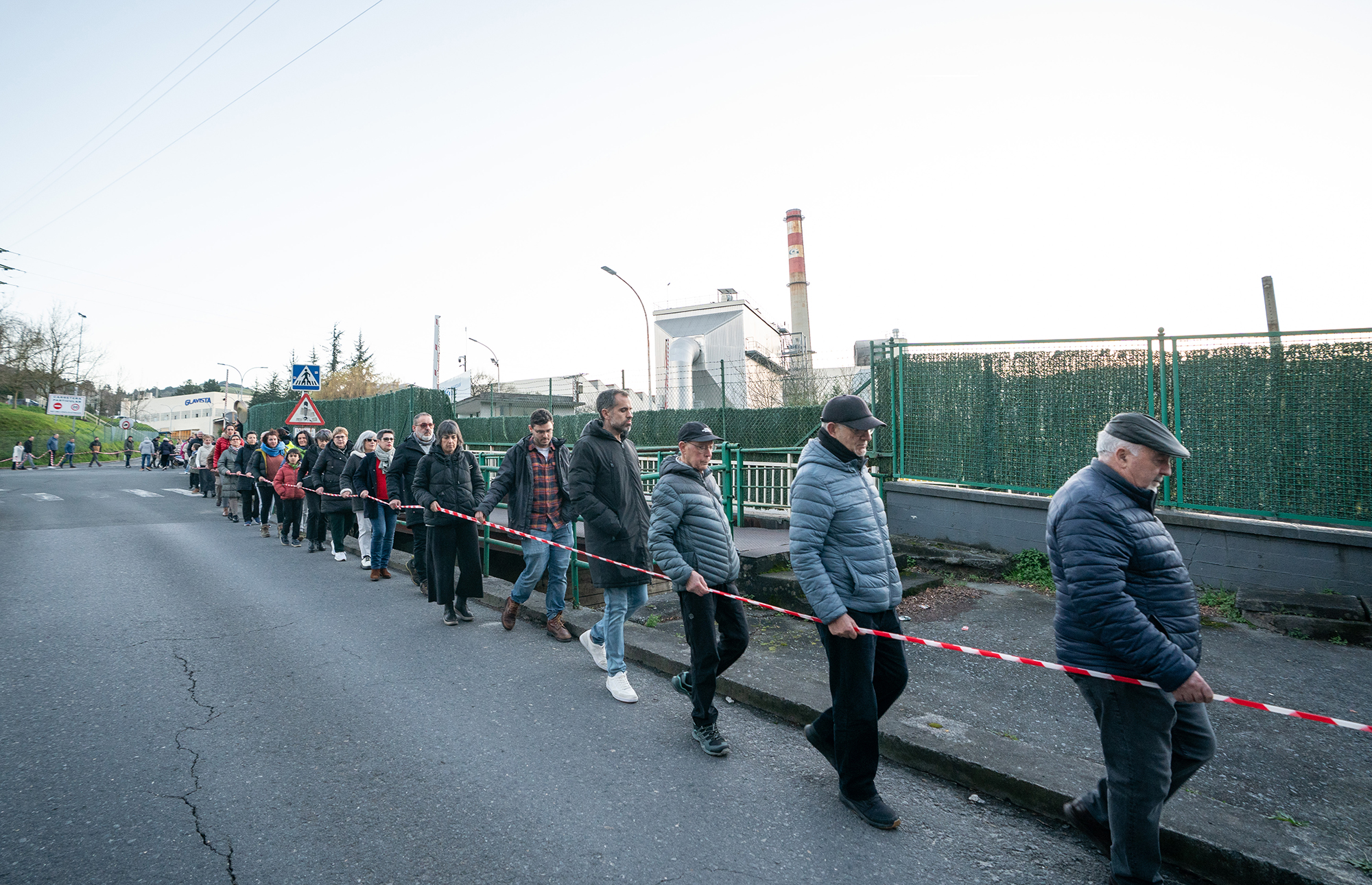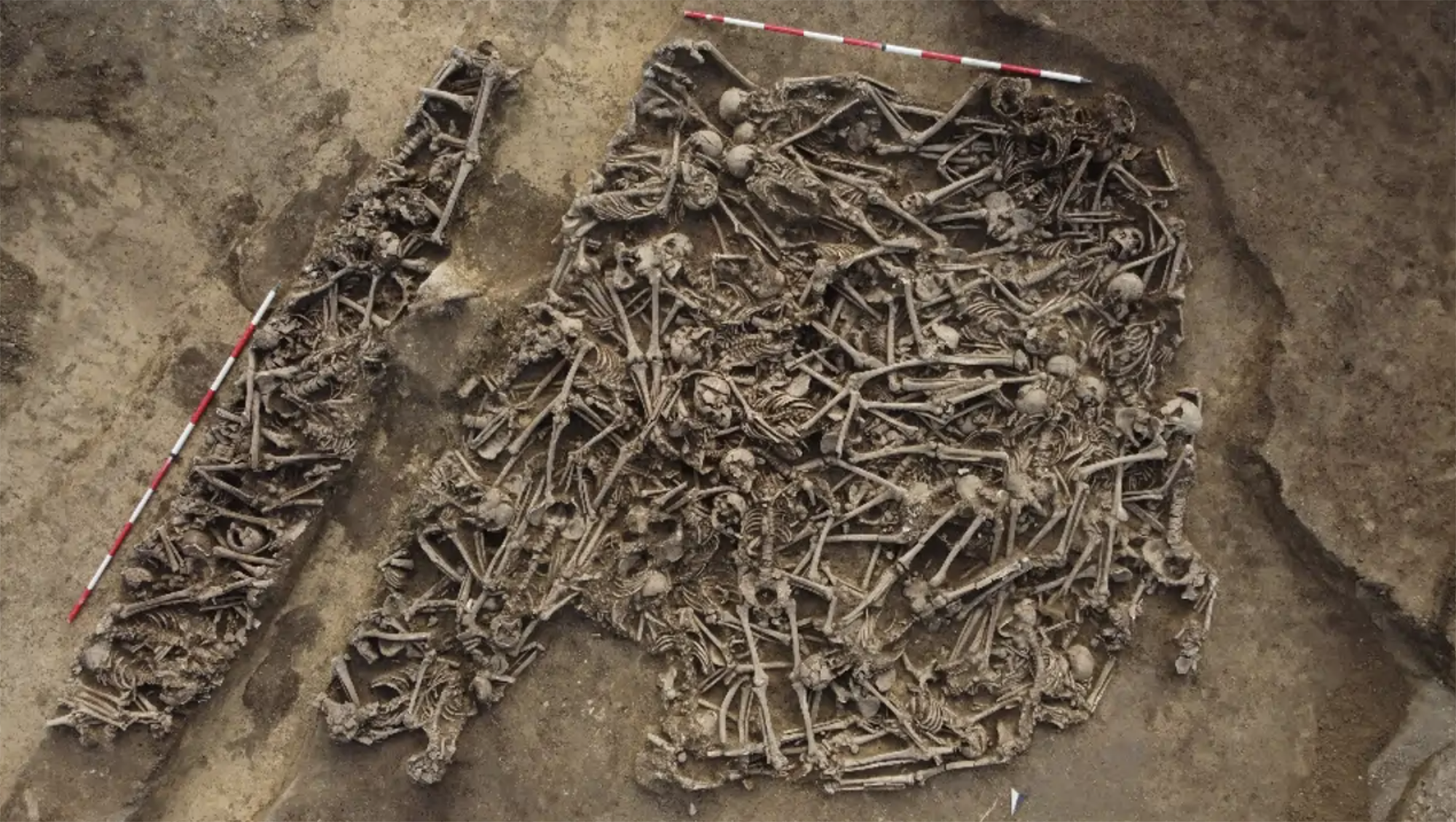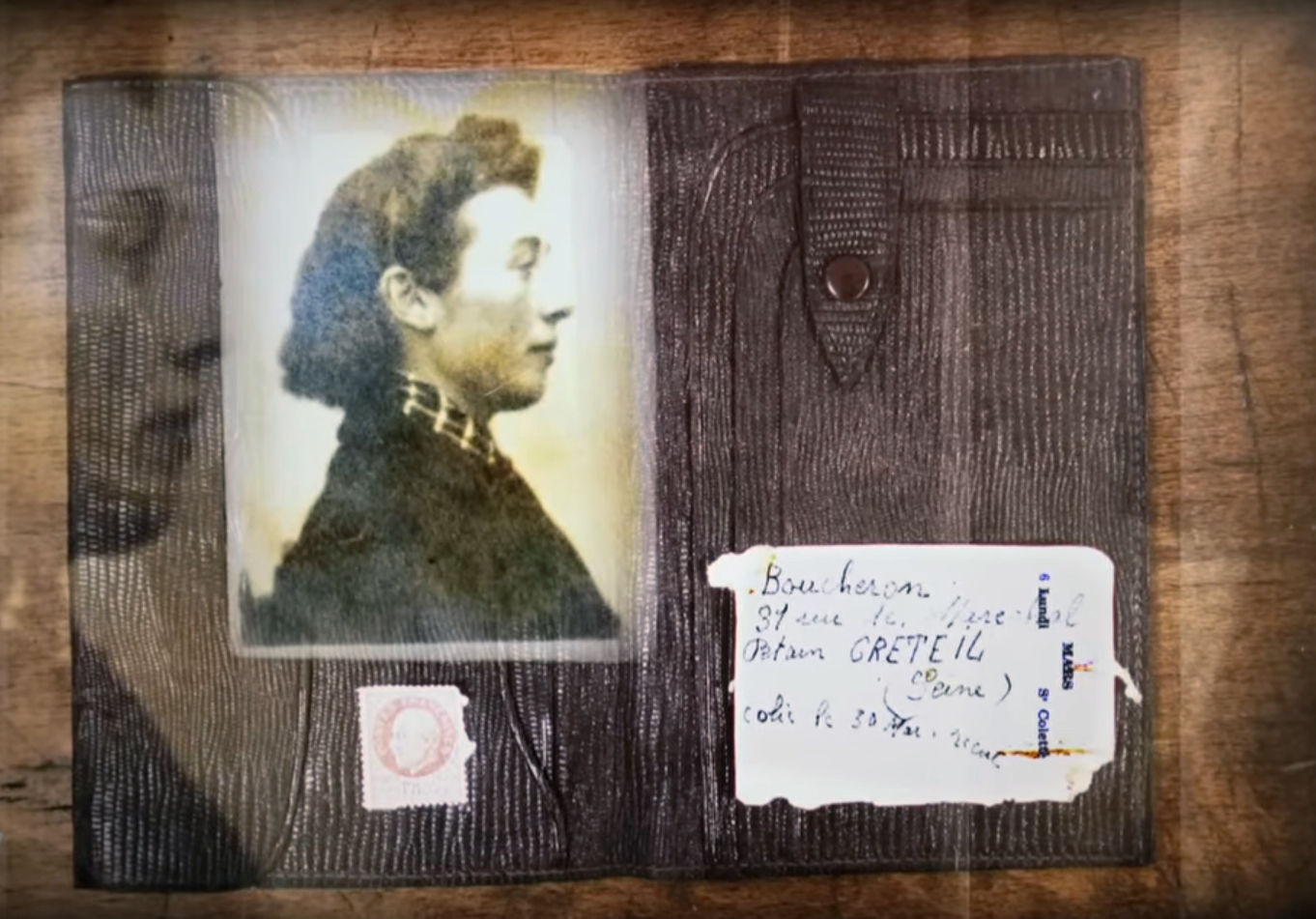"What we should not feel is fear."
- Historian Josep Fontana i Lázaro (Barcelona, 1931) has been researching, publishing and conducting doctoral theses for half a century. His disciples call him the master of historians. He was a disciple of Jaume Vicens i Vives and Ferran Soldevila. On the other hand, E. The influence of p Thompson, Pierre Vilar, Antonio Gramsci and Walter Benjamin in Fontana is palpable. In the field of research, which opened new avenues during the years of Franco, it is a sign of this that was published in 1971, The Bankruptcy of the Absolute Monarchy (1814-1820), a complete history of the hand of a Marxist historian. History: past analysis and social project (1982), La història despres de la fi de la història (1992), La història dels homes (2000) and L'auld'historiador (2010) are among the best known works. He is also an editor and thanks to his work in this field he has offered a varied historiography worldwide to experts, students and history readers. Nor is militancy strange to him, as Josep Fontana was one of the protagonists of the PSUC, the party in which he was a member. A year has passed since the For the Sake of Empire Awards were published. A history of the world since 1945, Fontana's greatest work. In February of this year he will offer us the continuation of this book. It is not the only project he has in hand, he is also working on the book La identitat dels catalans. He received us at the office of Pompeu Fabra University, where he is professor emeritus. When we had to ask him about how to achieve social transformation and power, he took the GPS of the conversation and drove us to May 1968.
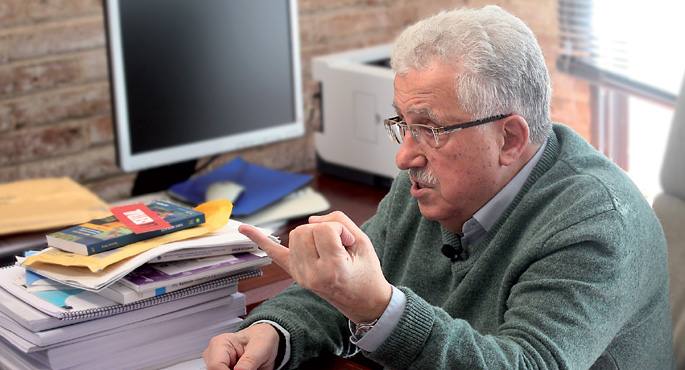
Sometimes it has been tried to confront the Communist and Anarchist praxis as a different way to achieve social change. What lessons can we draw from history, for example, from the events of May 1968?
Interestingly, I'm sort of an expert in May of 1968, even though I'm not there, because I had a lot of friends there and they sent me a lot of letters. I have pamphlets from every group and every day, and in addition to what was going on, I can follow what people thought was going on.
And now I've come across one thing: a friend, historian Núria Salles, sent me letters explaining her experience. When I rescued the letter, I saw that I had more inside of me than I thought. We know the utopian approaches that the most enthusiastic groups had, and we know that the unions were simply negotiating, and when they came to an agreement everything was over, the kids went back to college. But Núria told me one thing that nobody explained, which happened in the factories of the neighborhoods where he lived [on page 4, full letter] .
So Núria picks up what's on the walls of the factories, and that's another May of 68, which has nothing to do with those kids who thought they were destroying the old world to build a new world, or some paced ups that said, "It's over." Who has taken it? Nobody.
Is this something that happens often in history?
That's right. Today 68 is important in a clear sense: In Paris, Mexico, the United States and Prague, it shows that these spontaneous forces that emerge from the bottom and that are relatively rare – the students of Paris are just a small part of society… – cannot change the world, everything will remain the same and marks the beginning of the setback that we have been experiencing since the 1970s.
How can things be changed?
Most of the time, the changes take place in moments and shapes that no one has foreseen, because if they had been able to predict, they would have thwarted him from above. Cuba happened once, but when Guevara tried to do the same in Bolivia, they already knew how to stop it. The test is in Occupy Wall Street or in a system that has learned very well how to cope with the movements of March 15. The problem is, as long as kids show up at the Puerta del Sol, if parents vote at pp, we're wrong. Conditions are necessary to enable great social mobilization. There's a moment, you don't know which, and you don't know why, but it always happens like this, that something ignites the spark, the police themselves refuse repression and at that moment everything ends.
Are we coming to that moment?
The French or Russian Revolution was not planned by anyone on the eve. These things explode because the fuel needed to explode is very widespread. Can this happen in the United States? I don't know. Can this happen in Europe? I don't know. But what you can't think of is that the patience of society is infinite.
So what does it depend on to make that change?
I'm going to talk to you about a topic that directly affects you. In EE.UU, a large group of people are excited about the ability to change cooperativism, and Mondragon is their model. Of course, you see the ability of the Mondragon movement to act in the Spanish state and you realize it is very limited. The key is who can decide the rules of the game, and the rules of the game are still in the hands of the Madrid power. That's basic.
Reach power…
I was in Peru when the Shining Path was still impetuous and I was given a cassette with the songs sung by the prisoners of an island in front of Lima. They were songs of revolution. One of them contained words adapted to the melody of Warszawianka and simply repeated: “Except power, everything is illusion.” Well, that may have the smell you want, but behind it is an element of reflection: to disarticulate the repressive power, for everyone who does not have the ability to establish the capacity for action from above, it is very difficult to change things. It's really hard to change things down there.
EMPIRE OF CAPITALISM
The United States may have the deficit it wants, we have already seen the money we have spent among all in those wars. Is it unsustainable?
Yes. And not only the United States, but also the United Kingdom. That is the way to disaster, buying debt from the United States and the United Kingdom at interest rates below inflation forecasts. The problem lies in the fear of the deficit that justifies everything.
Do we depend on the arms industry?
They continue to press for investment not to be wasted. When Nikita Khrustschev left the United States in 1960, the stock exchange collapsed for fear of a disarmament deal somehow. I don't know if it's decisive, but it's important.
In For the sake of the Empire you have analyzed the relations between the presidents of the United States and the USSR from a human perspective.
When the question of U2 spy planes came about in 1960, Nikita Khrustschev was wrong, saying he believed in Eisenhower's honesty, that he allowed his children to be educated and said all those nonsense. Eisenhower negotiated under pressure from public opinion, the US president knew that the Soviet enemy was a deception. But maintaining this threat had two advantages: on the one hand, it ensured the political solidarity of NATO and, on the other, it was an element that maintained the social pressure to control the left and the trade unions in its territory.
Was the threat of nuclear war real?
The conquest of the world is impossible, no one has believed it. Yes, nuclear destruction. During the maneuvers “able Archer 83”, the Russians thought they were going to be attacked. And Reagan said, "Are these Russians crazy? Who can it happen that the Americans are able to occupy China or the Soviet Union?” The Americans did not win in Korea, they lost in Vietnam, the Japanese occupied part of China’s closest coast during World War II… On the other hand, no one thought that the Russians would occupy the United States, as they did not have boats for it.
Was it about destroying more than occupying?
But you can believe that the will to destroy was to conquer later, because destroying without any more makes no sense. There were times when the danger of making a nonsense was felt, but carefully, the problem is still there.
But if it exploded, where would it explode? Between Pakistan and India? In Israel?
I don't know. But in the Bulletin of American Atomic Scientists, there's an article about possible threats, which are not atomic bombs, but diseases.
What changed in the mentality of the Israelis after the Six-Day War of 1967?
For a while this idea of the creation of the new State was imposed, all this chanza of “Israeli socialism”, of the kibbutzim, of the songs of the inn. All of this changed radically when the occupation began and became a policy conditioned by religious bases. Israel is fully conditioned by these religious agents.
Bush son to Bush father: “What are neocons?” And Father Bush said, “In a word? Israel.”
For example, Sheldon, who will take Eurovegas to Madrid, fortunately for the Catalans, has given many millions to the Republicans, first to Gingrich and then to Romney-yo, whose goal was for the US to move its embassy from Tel Aviv to Jerusalem. The influence of Jews and Israelis on U.S. politics is enormous, on the other hand, related to the crazy Christian sector that awaits the arrival of the Messiah and the end of the world. When you talk about the right of Israel, that right has a simple basis: your God has told you that that land is for them, and what another God says does not matter, because the good God is for them.
Social mobilization appears constantly in the book, many processes are described: the Arab Spring, Iran…
The maturing of the crisis process and its openness to Europe have forced me to rethink things. In the United States, they move from the privatization of politics to the privatization of the state itself; according to James Meek, what is really being privatized when social services are privatized are citizens. And then comes the process of repression, necessary to ensure that scheme.
These are reflections that you will publish in the near future.
In February I will be publishing a 150-page book, with reflections that I have not been able to avoid once the last book is over. I have had a number of articles and an interesting book as a starting point. The Asymptotes of Power is almost a stranger yet, the economists Shimshon Bichler and Jonathan Nitzan. According to his theory, capitalism is not a form of production, but a form of power. Social imbalance has favored a process of hardening penalties and repression. That is what they have dealt with by comparing, on the one hand, a curve on the distribution of profits in the United States and, on the other hand, a curve of citizens who have been sentenced to jail or other penalties. According to them, if progress is made in this process, an asyntic system can be reached in which greater repression can provoke a revolt.
A system based on penalties and prisons?
We know no trace of what that process means in the United States, for example. To give a figure, the United States has 780 prisoners per 100,000 inhabitants, while China has 170. I have tried to explain the issue because this situation is here.
On the occasion of the publication of your last book, you said: “Nor did fascism achieve what capitalism has achieved.”
The number of people who are fake slaves is today the largest in history. The things we consider normal do not matter, for example, to speculate on food and to have an absolutely respectable international business.
Investment funds are linked to pension funds and financial groups speculate on basic food: wheat, maize, soy… In Argentina, for example, those who want to do business with soy send criminal groups to farmers. Mainly in Africa and America, there is a problem of diffuse property rights that has caused millions of farmers to be thrown out of their land to be able to produce marketing products. In Honduras, peasant leaders are killed. I have always defended the work of the Vía Campesina association, which denounces what is happening in Bogotá, Ethiopia or Kenya to deal with the indifference of the people.
In History after the End of History, you talk about Mexican Indians and say they change religion and language. But diet doesn't.
The Spaniards brought to America what they needed: wheat, wine and sheep. They later discovered maize, which is not natural, was invented by Mexicans, and then the potato, and without it, the demographic growth of the 19th and 20th centuries would have been impossible. The Spaniards wanted bread, wine and meat, but John V. Murra, an international brigadist in Spain and a university professor in EE.UU, explained that there they had a complex civilization and culture.
In the Neolithic, hunter-gatherers started agriculture. Is the development of agriculture a step forward?
Rather than progress, it is a necessity that requires a more connected life and a very different diet. When the pressure of resources was faster, the life of the pick-up hunter was more enjoyable. After all, the optimistic view of Edward Gibbon, the heir of the Enlightenment, that everything is moving forward and that there is never any great setback, is not true. What has happened after the illustration is the result of the struggles. The myth that humanity is always moving forward with a kind of inner motor must be ruled out. Progress can only be achieved by fighting for it.
GREAT DIVERGENCE
To understand this crisis, Paul Krugman's theory of Great Divergence, which begins in 1970, is fundamental to you.
For me, it's fundamental for one reason. That kind of pact between the Democratic Party of the United States and the trade unions extended much more. But this pact was deteriorating and money from other sources became extremely important. We are also seriously affected by the betrayal of social democracy. It started with Carter, but the toughest measures leading to the economic crisis were taken during the Clinton mandate. It is the time of the “third roads” in which the secular tradition, the Social Democratic tradition, was sold in the most indifferent and miserable way.
But people didn't suspect, even now, that this was going to happen.
Society in general did not see the seriousness of the dismantling of trade unions that began in the 1970s. Of course, in Europe the one who started that was Thatcher, with the help of Reagan. But in Reaga he was working in a prepared area and when the unions were dissolved they did not realize the serious consequences that it was going to have. We can say what we want from the unions, but if from the 19th century to the present the unions had never acted would have been welfare.
What is the responsibility of the trade unions?
Falling into comfort? The trade unions gradually became a guarantee of the established order, in exchange for obtaining several concessions. That happy period between 1945 and 1970 was the supreme moment, in which the welfare state was completely established. At that time, the Government could agree and enforce such social pacts; employers felt that by paying they could avoid social revolt. The key is the Great Divergence, because from the 1970s on, that great social revolt cannot explode.
Why?
The threat of the Soviet Union has not existed since the 1970s. That lie doesn't work. After the Second World War, no European Communist Party has ever tried to organise a revolutionary movement. From the beginning they were clear that they could come to power through their influence or by the weight of their vote. Since there are no threats to the other side, it is clear that the time for concessions is over. What can unions do when leaders are not afraid? The only thing they can do today is to organize strikes, and their capacity for action is diminishing.
Can you say that they are out of play today?
I have a great deal of respect for the basic leaders and for those in the unions. What's up? It seems that in CCOO some do not agree with the limited role that trade unions currently have.
All that started with the Great Divergence would be impossible without the influence of the media.
I say to my disciples, What the so-called democracy in the state means is that every four years you can vote in favour of Rajoy or Rubalcaba, and that's where the options end. Why? Because the elements for shaping their opinion about the world and society depend essentially on a few media. The citizen and political life prior to the Civil War has ended, the force of associationism, the force of meeting in horizontal groups, and it has been exhausted to a large extent because these media have the power to control people's lives and opinions through entertainment. I have a great deal of respect for journalists trying to enter unauthorized merchandise. But the main issues are fully controlled. They're controlled by the owners. For example, behind Antena 3, on the other hand, is the one that is my boss, Mr Lara.
Can there be Icelandic roads somewhere else in the world, or in the Europe we know?
This is because they have much less control over the situation in Iceland. The truth is that we are all suffering the consequences of the opinion of the leaders of the German economy, and the only thing they do not want is inflation. And if inflation means everyone else is going to be hungry, you have to be hungry. But the Bundesbank has already given the first warnings that the German economy is going to go backwards, and it is about to see what is going to happen.
It seems that there are objective conditions for rebellion, but that the system has been concerned that there are no subjective conditions.
The situation is really serious, causing irrational fears. These fears do not allow people to risk voting, even if theoretically so far away from assimilating, and for fear they vote for the Popular Party, following the principle of “Virgencita, virgencita, let me stay as I am” (better than poorly known). What will happen in 2013? All the evidence suggests that the Spanish economy will fall by 1.4-1.5%, while unemployment is likely to rise and is already at 25%. How can we fear a worse situation than is announced, in view of the line being followed? But when the elections arrive in Galicia, the majority vote for the People’s Party.
And what lines do you follow?
It is very clear what the People’s Party is doing today: it is a policy to stifle the protests. This policy was initiated by punishing demonstrations and the use of justice by increasing rates has now been impeded. But from a given moment on, that doesn't work. For example, I have just presented a book written by some judges, in which it is explained that the judicial apparatus of Franco remains intact and shows the corruption of that apparatus. It's truly extraordinary. I started to see something new: judges protest. What I said before: when the police refuse to repress…
You're 81. Are you worried about being on the eve of a possible revolt or on the eve of a fascist system accompanied by a new world war?
It is fear that we should not feel. What's going to come in 2013 in the Spanish state scares me, but it's a clear fear, it's not just ideas. Pp is currently pursuing a repressive policy between the protests, but it does not resemble fascism, it does not have a supposed revolutionary legitimation, it is not the alternative, it is to keep order at all costs. For a moment, when the Arab Spring, the occupation of Wall Street and the European movements came together, the world revolution seemed to be coming. It was too early, the one who has to come will come.
CATALANISM
In 2007, in an interview with Vilawebera you said: “M’apunto independència si se realitable sense danys per ningú” (I share independence if possible without prejudice to anyone). But you insisted that there were no political conditions for this. Have these conditions changed in the last five years?
No. Now I'm writing a book about the identity of the Catalans. The issue is of concern to many people. In this matter I find it immoral to try to deceive the people, and those who do know that it is a deception to say that when a referendum is held and the yes come out, everything will be done. Talking about independence does not bother me, and less so after centuries of misunderstandings, topicals and insults. The question is: What is independence like? When? Under what conditions? What price did you pay? I'm touching a subject that also affects you. There is no point in raising something that might have a human cost when there are no minimum guarantees to achieve the objective. In a way, Kosovo does not.
“People don’t love what they are charged with,” a phrase that is often attributed to Jordi Pujol.
If so, it is a stupid reasoning.
But there has been widespread belief that the Catalan political class did not put enough pressure on an economic agreement such as that of the four Basque territories.
Politicians got it wrong, maybe when they could get something. But, after all, the entire autonomous state was a hoax. After reading the book of a SECED leader (formerly CESID), I wrote an article. According to the book, a meeting took place on the same day that Platajunta was formed in 1976. Those who spoke of self-determination in the programs, Felipe González and Alfonso Guerra met with the group headed by Andrés Casinello. Philip explained his ideas about government, so patriotic that he touched them. Felipe told them that he was not prepared to give an economic concert to Catalonia, which was the goal of the high bourgeoisie. And do not think about creating an autonomous Catalan Socialist Party.
The news coming from Catalonia to the ARGIA reader indicates that consultation and independence are about to arrive.
OK, let's go see, and then what? Euskal Herria was the only place where he did not vote in favour of the Constitution, and that was one of the ways to show his behavior.
The Constitution and NATO, we always lose the referendums we win.
I voted in favour of the Constitution, but we have to understand how they put it to me: Do you want a Constitution or are we going to follow the laws of the Francoist state? Today they would organise a popular consultation and win the consultation. And then? Those who pay for that consultation to the politicians who are organizing it have no interest in changing the status. For example, La Caixa has been slowly consuming much of the waste from other banks and has become the main bank. Are those the forecasts of the economic leaders who are thinking that independence is going to take place? Let's be serious; those politicians are playing with that idea. Who do they protect?
I mean, who does it support them from?
No one. Their goal is to capitalize on people's discomfort and be in power for another four years.
What unites the Catalanists? Languages?
For many centuries, language has not been the most essential. There's a collective with its own cultural tradition that comes from the Middle Ages, and I don't mean conquests. In Catalonia – not in the Crown of Aragon – Pierre Vilar and others say that in Europe the first articulation of what could be a modern state was created, the hacienda was not under the control of the king but in the hands of representative institutions, which issued debt. This gave rise to the idea of a group of citizens with rights above the king and to the consolidation of the institutions that necessarily led to the state.
Do you mean the time of the Austrians?
At the beginning of the sixteenth century, Catalonia was very small and poor. The kings of the Austrian House focused on Castile, where they could raise money, and paralyzed the development of the Courts. Modern integrated growth began at the end of the 17th century. At the time of the Succession War, they began to propose the implementation of a system similar to the one they had in England or the Netherlands. It was not a democratic system, but it was based on representation, against absolutism. That was what was at stake, and at one point those who defended Barcelona said: “We fight for the freedom of Spain and the Spaniards.” They were the first to express and denounce the defeat of the Communities of Castile that this kingdom had lost the opportunity to develop this system.
What can we say about the impact of industrialization?
Catalonia was industrialized before other territories, in 1840 the first modern unions were created, along with the British unions, while the Madrid Courts lost the citizens who condemned industrialization.
Many Spaniards continue to believe that the progress of Catalonia and Euskal Herria has been achieved through the absorption of external resources, and do not understand that in the eighteenth century, when the economic development of Catalonia began, the myth of Catalan workers emerged: “The Catalan labriego of the stones takes bread” (the Catalan labrador gets bread from the stones). A lie, I didn't have bread, but wine, then I transformed the wine into liquor and exported it. They do not want to understand that this is due to the existence of different social rules that have allowed the start-up of the first factories. All this without forgetting that I have many Castilian friends and that a few months ago I was appointed honorary doctor in Valladolid. Here, meanwhile, I was vetoed at the Autonomous University. That too has substance.
You said at the outset that it was not a linguistic problem. But today, yes, there's the answer to Wert's reform.
I don't think they can get anything for resistance. I was a professor during the years of Franco, we did what we wanted and not what they wanted. When students got to the advanced level, they told us that we had to prepare a program. “You give me the program and I will teach you what I want.”
We are heirs to a tradition of rights and freedoms, and we want to live accordingly. We have tried many times, but, for example, when I was a member of the Archives Committee – Esperanza Aguirre was in charge of dismissing me – we were discussing the transfer of the Generalitat papers that were in Salamanca, and I had to listen to a famous Castilian humanist who did not agree with the transfer because “when you give something to the Catalans they carry everything”.
Therefore, language is not so influential in Catalan identity.
Extensively discuss language issues. In the 18th century, when the bourgeoisie adapted to the prosperity of the monarchy, it gave up the language. But the popular class didn't oppose it. For them, language became an element of social identification; in the popular theater, in the game of bilingualism, the official, the old military, speaks Spanish. At one point, a group of people realized the potential of language. If it was public, it started to create a humorous and later serious literature.
Was that the time when Reinxença was born?
A cultural movement was born to host a poetry festival once a year. But then the members of the movement did it in Spanish at home and the letters sent to them were also written in Spanish. The language emerged from the bottom, in the 1960s, around the revolution of 1868. Citizenship was mobilized and some Catalan intellectuals and journalists began to perform their first satrical magazines, plays of humor and parodies. They realized that it was public and created the first major journals, which would last about 80 years, after which serious literature came. All of this emerged from the bottom-up tradition and was proposed to the top: “We hold and regulate the language so that it is not what you do for archaism.”
It is the first news, in Euskal Herria we have always been told that it was a matter for the bourgeoisie…
No, no.
Once you introduced Eric Hobswam and Donaldson, you said that what defines Europe is miscegenation and dissent. Does the construction of Europe make sense today?
When I mentioned mestizaje I meant that Europe brings together and confuses many cultural traditions. But if I had to choose something that defined Europe, I would choose the Enlightenment and the First International. One of the dramas of the Arab world is the lack of enlightenment. On the other hand, and with all the desired critical elements, the movement linked to the rise of communism emerged in Europe, emerging from European conditions. In the years of the First World War we found ourselves in Zurich, Lenin, those who were assembling the Voltaire Kabareta, pioneer of Dadaism, and Joyce Ulysses writing… What we call Europe was in the design phase. The rest is a political invention which, it is said, is echoed by the Roman Empire, by Christianity and I do not know what. There will be many Europe; that is not my Europe.
Germany is achieving with the European Union what it did not achieve with the two World Wars.
That's right. The maps that appeared in magazines such as Adler or Nazi Propaganda were the current common European map.
Borders are 19th-century inventions that move between pastors and pastors. But the invention of European policy was only done in economic terms. It must be remembered that the first objective of the structure was to integrate and recover Germany, while the others wanted Germany to sink, so that the plays of the past are not repeated. As an editor, I am very clear: if you want to fail, publish books about Europe, they are not of interest to anyone. When we talk about European history, we refer to the retrospective of the current histories of states, and that is absolutely artificial. In the Middle Ages there was no Yugoslavia, no France.
MILITANCY
You've been a militant for many years.
My past militant ended some time ago, but I am still voting because I believe that we must vote against it. That is, what Emma Goldman said, “voting is useless, if it is no longer forbidden,” is not true. Voting serves to confirm who has the power of the majority, if you don't vote, you leave them the free path.
It calls for the vote on the Initiative for Catalonia.
It's hard. I would have liked to vote for the young people of the CUP – I have just directed the thesis of one of them and will publish it – I like it because they are obedient, without tricks, but sometimes they raise things that are not very realistic and that bothers me a little bit. I would like people to focus on the objectives that can be mobilised. But I've long left the militancy. Milila made sense at the time when I was a militant, at the time of Francoism.
It started in the 1950s.
The only serious thing we had here was the PSUC, which managed to influence the citizens. Proof of this is that in the elections it has achieved twice the percentage of the PC. In my neighborhood, meetings and conferences were held and the press was sold on the street. All of this was drowned, because those at the top believed that politics was from the top. So what do I think about for the future? It's social movements that have the ability to mobilize people from the bottom.
For example?
Movements that are taking place from below due to evictions and other issues. It is my hope that the capacity to articulate consciousness and generate fuel will be deduced from this. The other day I was with Itziar González, an independent councillor of the City Council of Barcelona and then left. In their view, the political parties, unfortunately, represent absolutely nothing. I was happy with the day of the demonstration against the war in Iraq, which was not organised by parties or unions, but arose from the bottom. There I went with my father, my mother, my children or my neighbors who came with my grandmother. I felt comfortable, I felt like I wanted to be there. It touched me to see the demonstration on 11 September from above, and it was a similar demonstration. But then they've used it, it's something else.
Some were placed in front of the banner…
Yes. But what did it really mean? The unease, the outrage, the outrage of the people.
Let's go back to your militancy. In the early 1960s, he militated with Manuel Vázquez Montalbán.
My militancy began in 1957, when the PSUC's group of intellectuals was formed, along with another Manolo, the philosopher Manuel Sacristan, who thought he could do something in politics, but when the upstairs realized he thought for himself, they ruled it out. In that group were some who had later gone to the other end, like Juan Goytisolo, and others that nobody remembers; I do remember them, because they were extraordinary people.
Manolo Vázquez started badly, and he decided to enter the game while he was still writing in the newspaper Solidaridad Nacional Falange. He had to make a living, some idiots thought he could be an infiltrate and formed a cell to isolate him. I will never forgive you – to Sacristan yes, because the poor is dead – for having made me complicit without knowing anything. Soon Manolo was about to marry Ana Salas, my best friend, and when I went to take the wedding gift, Manolo threw it into my eye. I finally learned that I was innocent of the victim of deception. We were close friends, we campaigned jointly against NATO: I made the comical side and he was serious.
We see disappointment in you by the political institutions.
I entered a party with a program of future demands. During the Transition, the leaders of the PCE and the PSOE were forgotten that for years some have jeopardized freedom and life through this programme and thrown it away. When post-Franco came, I would understand that my party had not decided that it was time to achieve those goals, but not to renounce them. That seemed to me to be a betrayal.
In addition to his militant past, he has also made a long career as an editor. Is it still in the Critique editorial?
I continue to serve as a consultant in Critique, and that is why I live. It is clear that a pension does not provide for the continued purchase of books. The state does not buy these books, I have to buy them, and so I have to work to make a living. This does not compel me to make concessions; I try not to publish anything that does not have the minimum dignity.
Once you said it was E. P. Thompson died young and some thought his death was okay.
Thompson left a historic job to devote himself to the struggle for peace and when he returned to history he saw that change was terrible, that people had abandoned everything they once believed. So Thompson set out to account and, when he was doing interesting things that might be uncomfortable, his death had reassured many. And he was praised for not bothering him anymore. Thompson had the virtue of not getting stuck in an essential issue: he never worked in college. There they would not allow him to do much, because access to major universities was prohibited.
Does he continue to meet with the teachers of the institute?
This experience started 20 years ago with the Institute of History. It's a seminar that we're trying to invite people from outside. We didn't want it to be institutionalized. The first to join were my disciples, some even come after my retirement; vice is no age. The high school teacher is the only one who teaches history to everyone. When students come to college, who teaches history?
“Hemen bandera gorria airean ibili da langileek hilabete luzez okupatutako hainbat fabrikatan, petankan aritzen ziren bitartean, emaztea eta seme-alabak lagun. Handik pasatzean entzundakoek oinarrian kutsu askoz gogorragoa zuten sindikatuen aldarrikapenek baino. Sindikatuak Gobernuarekin sokatira penagarrian ari ziren bitartean, hemengo %5 eta hango %8, fabriketako hormetan eskuz idatzitako eskabideak harrigarriak dira, egungo zerga sistema konplexua kontuan izanda:
‘Ez gara hain tentelak. Etekinetan parte hartzea? Ugazabei zergak arinduz eta gizarte segurantzari egiten diogun ekarpena handituz, esku batekin kentzen diguzue bestearekin ematen diguzuena. Kontzientzia askatasuna, bai; erlijioarekiko errespetua, baita ere; eskola pribatu klasistak diruz laguntzea gure eskola publikoak irakasleko 70 haurreko inurritegi bihurtzen diren bitartean, ez. Indartsuak gara, lagunkideok, baina honek ez du iraungo, ez gara aberatsak izango soldatak %10ean igota, laster liberaren baliogutxitzea etorriko da. Eska dezagun zor zaiguna, gure zergek gure gaixoentzako ospitaleak ordaintzeko balio dezatela, haurrentzako eskolak ordaintzeko, garraiobide publikoak hobetzeko eta ez pribilegiodunentzat autopistak eta aparkalekuak egiteko, eraikuntza enpresak diruz laguntzeko eta soldatapekoen kolektibitateak eskolak eta segurtasuna beregain hartzen dituelako 400 liberako soldatak ordain ditzaketen nagusiei emateko. Eta babes ofizialeko zuen etxeak ordaintzeko ere balio dezatela. Estatua da ugazabei 45 urterako eta %2ko interesean dirua maileguz uzten diena, %8ko mozkinak lor ditzaten beste guztien bizkar. Guri dirua 45 urtetan ordaintzeko eta %2ko interesean uzten al digute etxea eraikitzeko? Askatasun sindikalaren eskolak, bukatu dira kapitalaren lukurreriazko mozkinak politika sozialaren aitzakian. Eskolak bai, karitatea ez’”.
* Núria Salles-ek Josep Fontanari bidalitako gutuna.
In the Chinese province of Shanxi, in a tomb of the Tang dynasty, paintings depicting scenes from the daily lives of the dead are found. In one of these scenes a blonde man appears. Looking at the color of the hair and the facial expression, archaeologists who have studied the... [+]
Carthage, from B.C. Around the 814. The Phoenicians founded a colony and the dominant civilization in the eastern Mediterranean spread to the west. Two and a half centuries later, with the decline of the Phoenician metropolis of Tyre, Carthage became independent and its... [+]
Salvador Puig Antich frankismoaren kontrako militantea izan zen. Askapen Mugimendu Iberikoko kidea, 1973ko irailaren 25ean atxilotu zuten. Gerra-kontseilua egin zioten, eta garrotez exekutatu zuten handik sei hilabetera, 1974ko martxoaren 2an. Aurtengo otsailean baliogabetu du... [+]
Rudolf Botha hizkuntzalari hegoafrikarrak hipotesi bat bota berri du Homo erectus-i buruz: espezieak ahozko komunikazio moduren bat garatu zuen duela milioi bat urte baino gehiago. Homo sapiens-a da, dakigunez, hitz egiteko gai den espezie bakarra eta, beraz, hortik... [+]
Böblingen, Holy Roman Empire, 12 May 1525. Georg Truchsess von Waldburg overthrew the Württemberg insurgent peasants. Three days later, on 15 May, Philip of Hesse and the Duke of Saxony joined forces to crush the Thuringian rebels in Frankenhausen, killing some 5,000 peasants... [+]
During the renovation of a sports field in the Simmering district of Vienna, a mass grave with 150 bodies was discovered in October 2024. They conclude that they were Roman legionnaires and A.D. They died around 100 years ago. Or rather, they were killed.
The bodies were buried... [+]
Washington, D.C., June 17, 1930. The U.S. Congress passed the Tariff Act. It is also known as the Smoot-Hawley Act because it was promoted by Senator Reed Smoot and Representative Willis Hawley.
The law raised import tax limits for about 900 products by 40% to 60% in order to... [+]









